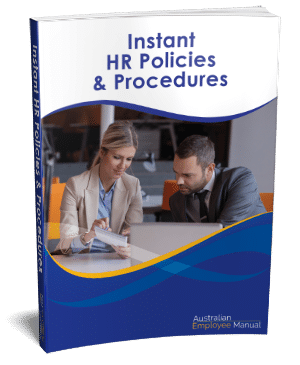As a manager, documenting information about your employees is an integral part of your daily routine. From recruitment notes and performance reviews to emails and project updates, written communication is a constant.
However, the importance of what and how you write cannot be overstated. Every note you take and every email you send not only communicates your thoughts but also shapes your employees’ perceptions of you. Moreover, in situations of conflict or performance issues, these written records can be scrutinised and used as evidence.
To navigate this, it’s crucial to approach your documentation with care. By following a few simple guidelines, you can enhance communication with your team while also protecting yourself legally.
Top 10 Rules for Writing About Your Employees
- Think Before You Ink: Just like getting a tattoo, once your words are out there, they’re permanent. Take the time to gather your thoughts before putting pen to paper or fingers to keyboard. This ensures that all key points are covered and that your response is measured and appropriate.
- Don’t Write When Angry: If you’re upset with an employee, give yourself at least an hour before responding. This cooling-off period allows your rational mind to take control and prevents you from saying something you might regret later.
- Delay Your Emails: Set your email program to delay sending messages by at least 10 minutes. This gives you a crucial window to review your words one last time and make any necessary adjustments before they reach your recipient.
- Trust Your Gut: If something doesn’t feel right about what you’ve written, trust that instinct. Reconsider your wording or the decision to send the message altogether.
- Document Major Discussions: Keep detailed records of key conversations, whether they happen in person, over the phone, or via video call. Make sure to include what was discussed and agreed upon, and store these notes securely.
- Stick to Observable Facts: Focus on what you’ve observed rather than your emotional interpretation. For instance, “She raised her voice and said…” is more accurate and professional than “She lost control because she’s always difficult.”
- Lock It Up: Confidentiality is key. Keep all notes and documentation secure, whether in a locked filing cabinet or a password-protected file. This prevents unauthorized access and ensures that sensitive information remains private.
- Avoid Discrimination: It should go without saying, but avoid writing anything that could be construed as discriminatory. Even a seemingly harmless comment can have significant legal repercussions.
- Read Back What You’ve Written: Always review your notes before finalizing them. Read them out loud to yourself to catch any unintended tones or potential misinterpretations. What seems straightforward to you might come across as harsh or unclear to someone else.
- Remember There Are Two Sides to Every Story: Your perspective is just one piece of the puzzle. Be open to other viewpoints and verify your facts before making any definitive statements.
Read more about how to give negative feedback to an employee.
Bonus Tip: Be Culturally Sensitive
In today’s diverse workplace, cultural sensitivity is more important than ever. When documenting employee interactions, be mindful of cultural differences that might influence behavior and communication styles.
What might seem direct and assertive in one culture could be perceived as rude or confrontational in another.
Strive to understand and respect these differences, and reflect this awareness in your notes. This not only fosters a more inclusive workplace but also protects against potential misunderstandings.
Enhancing Legal Compliance
Every note you take could potentially become part of a legal case, so it’s essential to write with this in mind.
Be factual, avoid assumptions, and ensure that your documentation is clear, concise, and free of any language that could be deemed biased or inappropriate.
Keeping accurate records not only supports your decisions as a manager but also provides a strong defense in case of any legal disputes.
By incorporating these practices into your daily routine, you can create a more positive work environment, enhance your legal protection, and promote better communication across your team.
Yes, it might take a few extra seconds to follow these rules, but the long-term benefits far outweigh the minor inconvenience.




